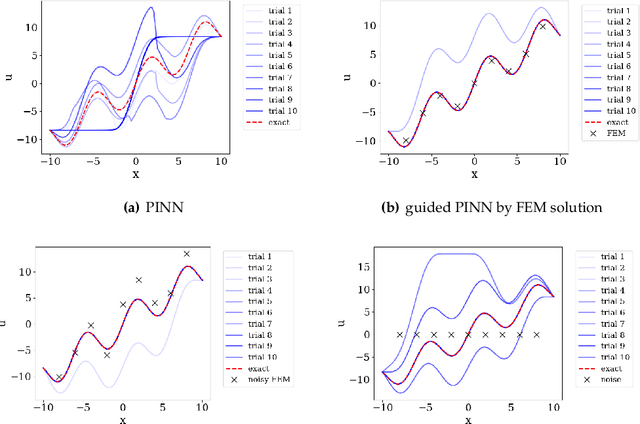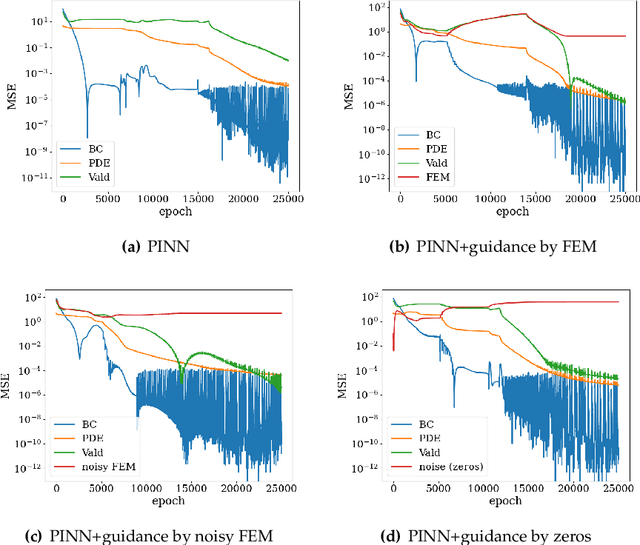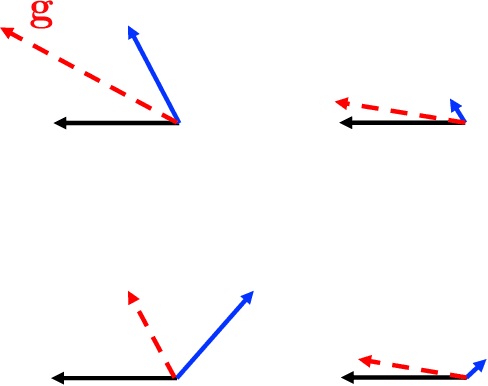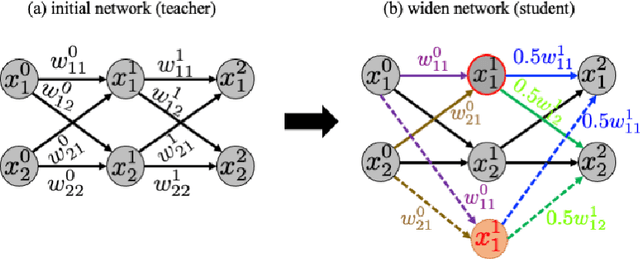Training multi-objective/multi-task collocation physics-informed neural network with student/teachers transfer learnings
Paper and Code
Jul 24, 2021



This paper presents a PINN training framework that employs (1) pre-training steps that accelerates and improve the robustness of the training of physics-informed neural network with auxiliary data stored in point clouds, (2) a net-to-net knowledge transfer algorithm that improves the weight initialization of the neural network and (3) a multi-objective optimization algorithm that may improve the performance of a physical-informed neural network with competing constraints. We consider the training and transfer and multi-task learning of physics-informed neural network (PINN) as multi-objective problems where the physics constraints such as the governing equation, boundary conditions, thermodynamic inequality, symmetry, and invariant properties, as well as point cloud used for pre-training can sometimes lead to conflicts and necessitating the seek of the Pareto optimal solution. In these situations, weighted norms commonly used to handle multiple constraints may lead to poor performance, while other multi-objective algorithms may scale poorly with increasing dimensionality. To overcome this technical barrier, we adopt the concept of vectorized objective function and modify a gradient descent approach to handle the issue of conflicting gradients. Numerical experiments are compared the benchmark boundary value problems solved via PINN. The performance of the proposed paradigm is compared against the classical equal-weighted norm approach. Our numerical experiments indicate that the brittleness and lack of robustness demonstrated in some PINN implementations can be overcome with the proposed strategy.
 Add to Chrome
Add to Chrome Add to Firefox
Add to Firefox Add to Edge
Add to Edge